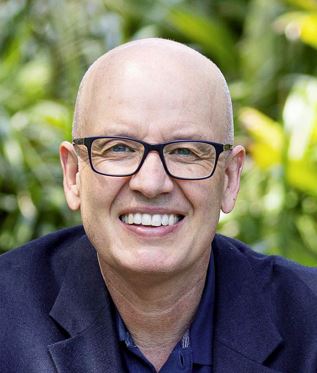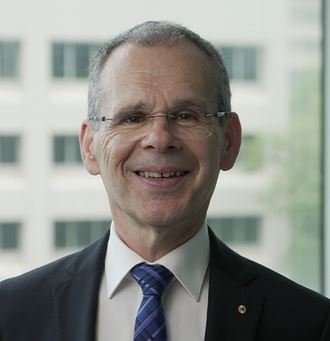The 2021 Prime Minister’s Prizes for Science were awarded in an online presentation last week with the Prime Minister Scott Morrison helping with the ceremony and commenting on the winners. The winner of the Prime Minister’s Award for Science was Professor Edward C. Holmes from the University of Sydney for his work in the scientific response to COVID-19, and his ground-breaking research into the evolution of viral diseases.

Professor Holmes has played a transformative role in the global scientific response to COVID-19 with his pioneering research on genome sequencing data and he received the $250,000 prize for his work entailing almost 30 years of pioneering research on genome sequencing data, providing invaluable insights into diseases such as HIV, Ebola, SARS and most recently, COVID-19.
Last year Professor Holmes was the first person in the world to publicly share the COVID-19 virus’ genome sequence. It was this crucial data which enabled scientists to start vaccine design within days.
The Prime Minister said Professor Holmes’ research into emerging viruses played a critical role in Australia’s response to COVID-19: “For over 20 years, the Prizes have recognised remarkable Australians whose dedication to scientific research and innovation has led the way in shaping the future of our country, and Professor Holmes exemplified why we placed our trust in science to effectively respond to COVID-19.”
“On behalf of all Australians, congratulations to the scientists, innovators, educators and research organisations being recognised for their dedication to solving the challenges of today and tomorrow,” the Prime Minister added.
Winner of the Prime Minister’s Prize for Innovation

The $250,000 Prime Minister’s Prize for Innovation was awarded to Professor Anthony Weiss AM from the University of Sydney for his trailblazing research into accelerating and improving the repair of human tissue. In 2008 he founded Elastagen to commercialise his research and inventions.
The Minister for Science and Technology Melissa Price said research-based innovation leading to commercialisation demonstrated the value and importance of the work of Australian scientists.
“I would like to thank this year’s recipients,” Minister Price said, “… for creating a more productive and more prosperous future for all of us through their research achievements, and for inspiring our next generation of scientists and innovators.”
“Our Government is committed to ensuring we use science – and the incredible work of our scientists – to continue to improve the lives of all Australians,” she added.
Here’s a list of the 2021 Prime Minister’s Prizes for Science recipients:
Prime Minister’s Prize for Science: Professor Edward C. Holmes (University of Sydney) was recognised for his transformative role in the scientific response to COVID-19, and his ground-breaking research into the evolution of viral diseases. For almost 30 years, he has pioneered the study of how viruses evolve and jump between species, including humans, to spread and cause disease. He was the first person in the world to publicly share the genome sequence of COVID-19, fast-tracking research efforts and enabling work on designing a vaccine to begin within days.
Prime Minister’s Prize for Innovation: Professor Tony Weiss AM (University of Sydney) has been recognised for his pioneering research and commercialisation of synthetic tropoelastin-based biomaterials, which can accelerate and improve the repair of human tissue. In 2008, he founded the company Elastagen to commercialise his research and inventions. The company was sold to one of the world’s largest biopharmaceutical companies for $334 million – one of the largest transactions ever completed in Australia’s life science sector.

Frank Fenner Prize for Life Scientist of the Year: Professor Sherene Loi (Peter MacCallum Cancer Centre) has been recognised for translating scientific findings into innovative treatments which can improve the survival of breast cancer patients in Australia and around the world. Her research led to the development and implementation of an immune biomarker test for breast cancer, to help manage patients with the advanced disease. This biomarker is now part of routine pathology reporting for breast cancer in many countries and is included in the World Health Organisation Classification of Tumours: Breast Tumours.
Malcolm McIntosh Prize for Physical Scientist of the Year: Dr Keith Bannister (CSIRO) has been recognised for his pioneering research into fast radio bursts – short, sharp pulses of radio waves that last a few milliseconds and are extremely hard to detect – which are now solving several of the big astronomical mysteries of our generation. Through Dr Bannister’s research, astronomers are now closer to determining what causes these fast radio bursts and are using them as tools to understand the content of the entire universe.
Prize for New Innovators: Associate Professor Michael Bowen (University of Sydney) has been recognised for his ground-breaking discovery and development of KNX100, a novel molecule which is now being commercialised to help treat addiction and other disorders of the brain and mind. Prof Bowen has been instrumental in driving scientific discoveries relating to serious brain disorders that lack effective treatments – such as opioid-use disorder, which kills more people in Australia each year than car accidents.
Prime Minister’s Prize for Excellence in Science Teaching in Primary Schools: Mrs Megan Hayes (Mudgeeraba Creek State School, QLD) is a STEM specialist and primary teacher, recognised for her outstanding work in championing the importance of STEM education and preparing students as ‘agents of change’ for the future. Her philosophy is to build the connection between science and its application in the real world for her students. She inspires students to think critically, take risks and become ‘agents of change’ for the future.
Prime Minister’s Prize for Excellence in Science Teaching in Secondary Schools: Mr Scott Graham (Barker College, NSW) is recognised for changing the way agricultural science is taught to secondary students, by developing unique programs to triple the number of students studying agriculture at the school over the past seven years. As the school’s Head of Agriculture, he aims to highlight how agricultural science can lead to diverse careers across a range of both urban and rural industries. The school has more than double the number of Year 12 agriculture students than any other school in Australia, and around 30 per cent of his students have gone on to pursue agriculture-related degrees at university level.
About the Prime Minister’s Prizes for Science: These are Australia’s most prestigious awards for outstanding achievements in scientific research, research-based innovation and excellence in science, mathematics or technology teaching.
The 2021 awards presentation was held online, and can be viewed by visiting here. www.industry.gov.au/pmprizes.
For more from Women Love Tech on science, visit here.






